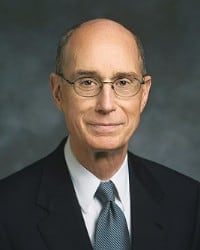
“Angels, shepherds, and Wise Men sought and found peace from their faith in Jesus Christ. So will you. The Savior’s birth is the gift that makes it possible for the Father to give us ‘peace in this world, and eternal life in the world to come.'”
LDS Quotes on Faith

“Angels, shepherds, and Wise Men sought and found peace from their faith in Jesus Christ. So will you. The Savior’s birth is the gift that makes it possible for the Father to give us ‘peace in this world, and eternal life in the world to come.'”
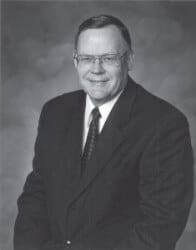
Faith is the power by which God speaks and worlds, solar systems, and universes come into being. So when we speak of faith we speak of tremendous power, even the power that can save a man from temporal and spiritual death.
| An Exploration of the Process of Faith as Taught in the Book of Mormon,” Church Education System Manual, p. 17
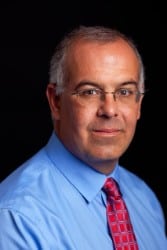
“Nothing that is worth doing can be achieved in our lifetime; therefore we must be saved by hope. Nothing which is true or beautiful or good makes complete sense in any immediate context of history; therefore we must be saved by faith. Nothing we do, however virtuous, can be accomplished alone; therefore we are saved by love. No virtuous act is quite as virtuous from the standpoint of our friend or foe as it is from our standpoint. Therefore we must be saved by the final form of love, which is forgiveness.”
| The Road to Character
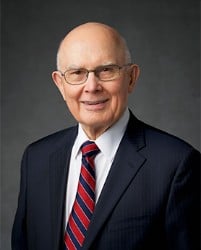
“Many years ago this conference heard of a young man who found the restored gospel while he was studying in the United States. As this man was about to return to his native land, President Gordon B. Hinckley asked him what would happen to him when he returned home as a Christian. “My family will be disappointed,” the young man answered. “They may cast me out and regard me as dead. As for my future and my career, all opportunity may be foreclosed against me.”
“Are you willing to pay so great a price for the gospel?” President Hinckley asked.
Tearfully the young man answered, “It’s true, isn’t it?” When that was affirmed, he replied, “Then what else matters?” That is the spirit of sacrifice among many of our new members.”
| “Sacrifice”
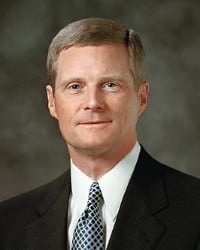
“How can I tell when I’m being prompted by the Spirit?…Quit worrying about it. Quit fussing with it. Quit analyzing it. You be a good boy, you be a good girl, you honor your covenants, you keep the commandments; and I promise you in the name of the Lord Jesus Christ that as you press forward with faith in Christ, your footsteps will be guided. As you open your mouth, it will be filled, and you will be where you need to be, and most of the time, you will not even have any idea how you got there.”
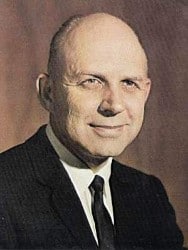
We’re not going to survive in this world, temporally or spiritually, without increased faith in the Lord – and I don’t mean a positive mental attitude – I mean downright solid faith in the Lord Jesus Christ. That is the one thing that gives vitality and power to otherwise rather weak individuals.
| “Developing Faith,” Ensign, Nov. 1986, p. 72
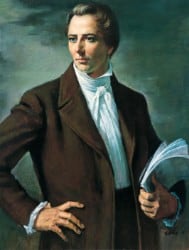
Three things are necessary in order that any rational and intelligent being may exercise faith in God unto life and salvation. First, the idea that he actually exists. Secondly, a correct idea of his character, perfections, and attributes. Thirdly, an actual knowledge that the course of life which he is pursuing is according to His will.
| Lectures on Faith 3:2-5
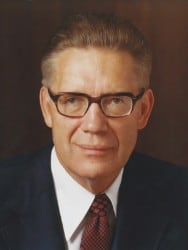
“faith and truth cannot be separated; if there is to be faith . . . there must first be truth”
| Mormon Doctrine. Salt Lake City: Bookcraft, 1966.
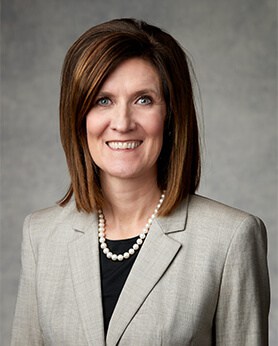
Trust God to lead you, even if that way looks different than you expected or is different from others.
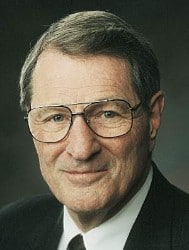
“Petitioning in prayer has taught me, again and again, that the vault of heaven with all its blessings is to be opened only by a combination lock. One tumbler falls when there is faith, a second when there is personal righteousness; the third and final tumbler falls only when what is sought is, in God’s judgment – not ours – right for us. Sometimes we pound on the vault door for something we want very much and wonder why the door does not open. We would be very spoiled children if that vault door opened any more easily than it does. I can tell, looking back, that God truly loves me by inventorying the petitions He has refused to grant me. Our rejected petitions tell us much about ourselves but also much about our flawless Father. By inventorying our insights, from time to time, it will surprise us what the Lord has done in teaching us. What we have learned in the past can help us to persist in the present. By tallying the truths and keeping such before us, we can also avoid lapsed literacy in spiritual things. If we will let Him, the Holy Ghost will bring all the important insights to our remembrance.”
| “Insights,” New Era, April 1978, p. 6